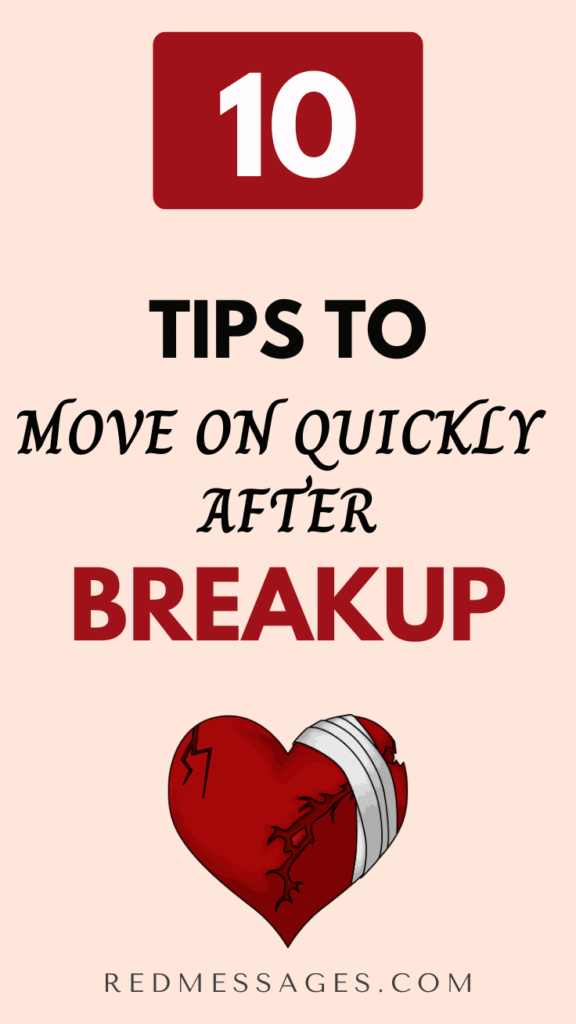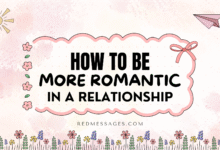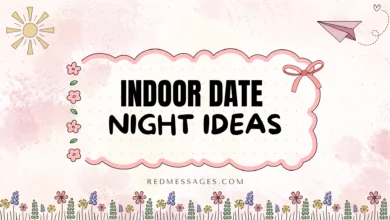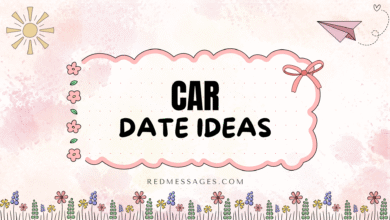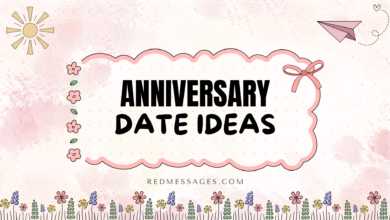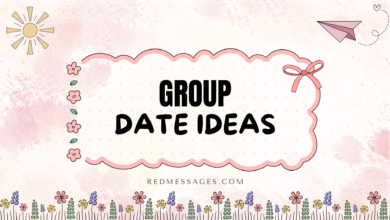How To Get Over A Breakup Fast

Hey there, beautiful soul. So you’re here because your heart feels like it got put through a blender, right? Trust me, I get it. After seven years of helping people navigate the messy waters of relationships and breakups, I’ve seen it all, and honey, you’re going to be okay.
Breakups suck. There’s no sugar, coating it. Whether you saw it coming from miles away or it hit you like a truck on a Tuesday afternoon, the pain is real and it’s valid.
But here’s what I want you to know: this isn’t your final chapter. It’s just a really crappy plot twist that’s going to make your comeback story even more amazing.
Ready to turn this heartbreak into a comeback? Let’s dive into the real deal about healing, no fluff, just honest advice from someone who’s been there (both personally and professionally).
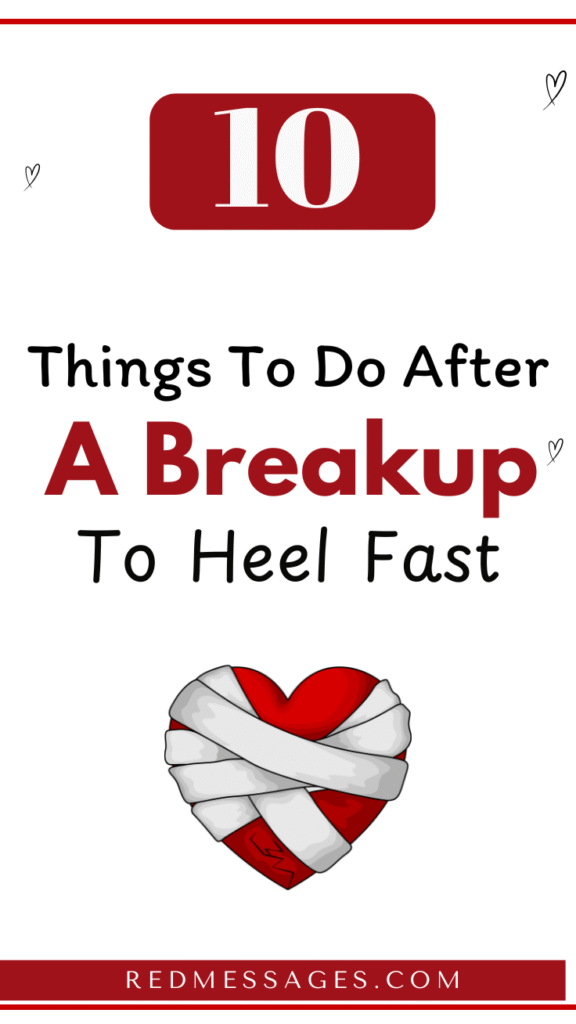
Go Through The Transition Phase
Okay, let’s start with the hardest part, accepting that this transition period is necessary. I know you want to skip straight to feeling better, but that’s like trying to bake a cake without mixing the ingredients first. It’s just not going to work.
Give yourself permission to be in limbo. This isn’t about wallowing (we’ll get to that), but about acknowledging that you’re in between chapters right now.
When my client Sarah came to me after her five-year relationship ended, she kept saying, “I just want to feel normal again.” But here’s the thing, normal just changed, and that’s perfectly fine.
During this phase, you need to:
- Sit with the reality that it’s over (I know, ouch)
- Stop making plans that include your ex
- Start thinking of yourself as a single person again
- Consider journaling your thoughts using apps like Journey or Day One
Think of this like cleaning out your closet. Before you can fill it with new, amazing clothes, you’ve got to clear out the old stuff. Some of those memories were beautiful, and it’s okay to honor them before you pack them away.
Creating Healthy Distance

Here’s where I’m going to be real with you, cutting contact isn’t mean, it’s necessary. I’ve had clients tell me they want to “stay friends” immediately after a breakup, and honestly? That’s like trying to perform surgery on yourself. You’re too close to the situation.
Block them on social media. Delete their number. Yes, really. I’m not saying forever, but for now, you need space to think clearly. Every time you check their Instagram stories, you’re basically picking at a healing wound.
Accept The Grief And Feel It
This might sound weird coming from someone whose job is to help people feel better, but you need to feel worse before you feel better. Grief isn’t just for death, it’s for any significant loss, and losing a relationship absolutely counts.
I remember when I went through my own devastating breakup in my twenties. I tried everything to avoid the pain, staying busy, dating immediately, even throwing myself into work until I was exhausted.
You know what happened? The grief was still there, waiting for me, just postponed and probably even worse.
Here’s what healthy grieving looks like:
- Crying when you need to cry (yes, even if it’s during your lunch break)
- Feeling angry sometimes (just don’t text them when you’re mad)
- Missing them and feeling confused about it
- Having good days and bad days, sometimes within the same hour
Why Avoiding Grief Backfires
When we try to numb emotional pain with shopping, drinking, rebounding, or endless Netflix binges, we’re basically telling our brain, “This feeling is too dangerous to experience.” But feelings aren’t dangerous, they’re information.
Your grief is telling you that what you lost mattered. Honor that instead of running from it. Set aside time each day to feel whatever comes up.
I literally tell my clients to schedule “sad time”, 20 minutes where they’re allowed to be completely miserable. Then, when that time’s up, they do something nourishing for themselves.
Give It Time
I know everyone says “time heals all wounds,” and you probably want to throw something at the next person who tells you that. But here’s the thing, time doesn’t magically heal anything. Time combined with intentional healing work heals wounds.
In my practice, I’ve noticed that people usually start feeling significantly better around the 3-month mark, but everyone’s timeline is different. Some of my clients bounce back in weeks, others take over a year. There’s no wrong speed for healing.
The Stages Aren’t Linear
You’ve probably heard about the “stages of grief,” but real healing doesn’t happen in neat little stages. One day you might feel empowered and ready to take on the world, and the next day you might cry because you heard “your song” in the grocery store. Both of these reactions are completely normal.
I had a client who was doing amazing for weeks after her breakup, hitting the gym, going out with friends, feeling confident.
Then her ex got engaged three months later, and she felt like she was back at square one. We worked through it together, and she realized that this setback didn’t erase all her progress.
Creating Your Own Timeline
Instead of wondering “when will I feel better,” try asking “what can I do today to take care of myself?” This shifts you from passive waiting to active healing. Some days that might mean:
- Going for a walk in nature
- Calling a friend who makes you laugh
- Trying a new hobby you’ve been curious about
- Having a good cry and then taking a hot bath
- Using meditation apps like Headspace for emotional regulation
Let Go Of The Past
This is probably the hardest section for most people, so buckle up, buttercup. Letting go doesn’t mean pretending your relationship didn’t matter. It means stopping yourself from living in a timeline that no longer exists.
The No-Contact Rule (And Why It’s Not Optional)
Look, I get it. You want to know how they’re doing. You want to see if they miss you. You want to show them how well you’re doing (or how badly you’re doing, depending on your mood). But checking up on your ex is like pressing on a bruise repeatedly and wondering why it won’t heal.
Delete their number from your phone. Unfollow them on all social platforms. Ask mutual friends not to update you about their life. I know this feels extreme, but it’s temporary, and it works.
One of my clients, Maria, kept checking her ex’s social media “just once” every few days. Each time, she’d feel terrible and need days to recover. Once she finally blocked him everywhere, her healing accelerated dramatically.
This gets tricky when you have the same friend group or work together. Here are some strategies:
- Be honest with mutual friends about needing space from ex-related topics
- Have a plan for social events where they might be present
- Focus on building relationships outside your shared circle
- If you work together, keep interactions professional and brief
Breaking the Obsession Cycle
Your brain got addicted to thinking about this person, seriously, it’s actual brain chemistry. Every time you think about them, you get a little hit of dopamine (even if it makes you feel terrible). You need to literally retrain your brain.
When you catch yourself thinking about them:
- Notice the thought without judging it
- Redirect to something else immediately
- Don’t analyze or engage with the thought
- Do something physical to shift your energy
Don’t Be In A Hurry To Date
Oh honey, I see you eyeing those dating apps. I get it, you want to feel wanted again, you want to prove you’re over them, or maybe you just don’t want to be alone. But jumping into dating too quickly is like trying to run before your broken leg is healed.
The Rebound Trap
Rebounds feel amazing at first. There’s excitement, validation, and a temporary numbing of the pain. But here’s what I’ve observed in my practice: rebounds delay real healing. You’re essentially putting a Band-Aid over a wound that needs proper treatment.
I had a client who dated four different people in the two months after her breakup. She felt great temporarily, but then she’d crash hard after each mini-relationship ended. We had to go back and do the grief work she’d been avoiding.
Signs You’re Not Ready to Date Yet
- You’re comparing everyone to your ex
- You talk about your ex on dates (big red flag)
- You’re looking for someone to “fix” how you feel
- You feel desperate to be in a relationship
- You’re dating to make your ex jealous
Using This Time for Self-Discovery
Instead of focusing on finding someone new, get curious about yourself. Who are you when you’re not part of a couple? What do you actually enjoy doing? What are your goals that have nothing to do with romance?
This is your chance to fall in love with your own life again. Make yourself so interesting that you’d want to date you.
Be Busy (But Not Too Busy)
There’s a difference between healthy distraction and avoidance. Healthy distraction gives your brain a break from grief while still allowing you to process emotions. Avoidance is when you pack your schedule so full that you never have time to think or feel.
The Right Kind of Busy
Good ways to stay busy:
- Learning new skills (hello, online courses!)
- Exercising regularly
- Creative projects that engage your mind
- Social activities with supportive friends
- Volunteer work that gives you perspective
Not-so-good ways to stay busy:
- Working 80 hours a week to avoid feelings
- Partying constantly
- Saying yes to everything just to avoid being alone
- Obsessively cleaning or organizing to distract yourself
Finding Your Sweet Spot
Aim for about 70% scheduled time and 30% free time. You need structure and purpose, but you also need space to process emotions and rest. I tell my clients to think of it like a workout routine, you need both action and recovery.
Activities That Actually Help
Some specific suggestions that my clients have found healing:
- Taking a pottery or art class
- Starting a garden (something about nurturing growth is therapeutic)
- Learning a new language on apps like Duolingo
- Hiking or nature photography
- Cooking classes or following YouTube tutorials
- Book clubs or writing groups
- Online courses on platforms like Coursera or Udemy
The key is choosing activities that engage different parts of your brain and help you connect with your identity outside of the relationship.
Forgive And Forget
Okay, let’s talk about the F-word, forgiveness. This doesn’t mean what you think it means, and it’s definitely not about letting your ex off the hook for their behavior.
What Forgiveness Actually Means
Forgiveness is about freeing yourself from carrying around resentment. It’s not about excusing what happened or pretending everything was fine. It’s about choosing not to let bitterness poison your future relationships (including the one with yourself).
I like to think of resentment as drinking poison and expecting the other person to get sick. It literally does nothing to them and everything to hurt you.
The Process of Forgiving
Forgiveness isn’t a one-time decision, it’s a practice. Some days you’ll feel zen and understanding, other days you’ll want to key their car (don’t do that). Both are normal.
Here’s how to work toward forgiveness:
- Acknowledge the hurt without minimizing it
- Recognize that holding onto anger hurts you more than them
- Practice sending them neutral or even kind thoughts (this is advanced-level stuff)
- Remember that forgiveness is for you, not them
When Forgiveness Feels Impossible
Sometimes there’s real trauma or betrayal involved, and forgiveness feels impossible. That’s okay too. You don’t have to forgive to heal. You can choose to simply stop giving your energy to the situation.
If your ex cheated, abused you, or caused serious harm, please don’t pressure yourself to forgive quickly or at all. Focus on your own healing and maybe work with a professional counselor.
Revamp Yourself
This is the fun part! Well, once you’re ready for it to be fun. There’s something powerful about changing your external environment when you’re going through internal changes.
The Psychology Behind a Physical Makeover
When we change our appearance, we signal to ourselves (and others) that we’re in a different phase of life. It’s like creating a visual representation of your growth.
But here’s the key, do it for yourself, not to make your ex regret losing you or to attract someone new. Do it because you deserve to feel fresh and confident in your own skin.
Makeover Ideas That Actually Make a Difference
- Get a haircut that makes you feel powerful (not just different)
- Update your wardrobe with pieces that reflect who you’re becoming
- Rearrange or redecorate your living space
- Start a skincare routine that makes you feel pampered
- Try a new style of makeup or go makeup-free if you usually wear it
The Danger of Extreme Changes
I’ve seen people completely reinvent themselves after a breakup, new hair, new clothes, new personality. While some change is great, be careful not to lose yourself in the process. The goal is to enhance who you are, not become someone completely different.
If you find yourself wanting to change everything about yourself, that might be a sign that the real work is internal, not external.
Travel and New Experiences
If you can swing it financially, travel can be incredibly healing. There’s something about being in a new place that helps you see your situation with fresh eyes. Even a weekend trip to the next town over can shift your perspective.
Solo travel is especially powerful because it builds confidence and proves to yourself that you can handle new situations independently.
Self-Love And Care
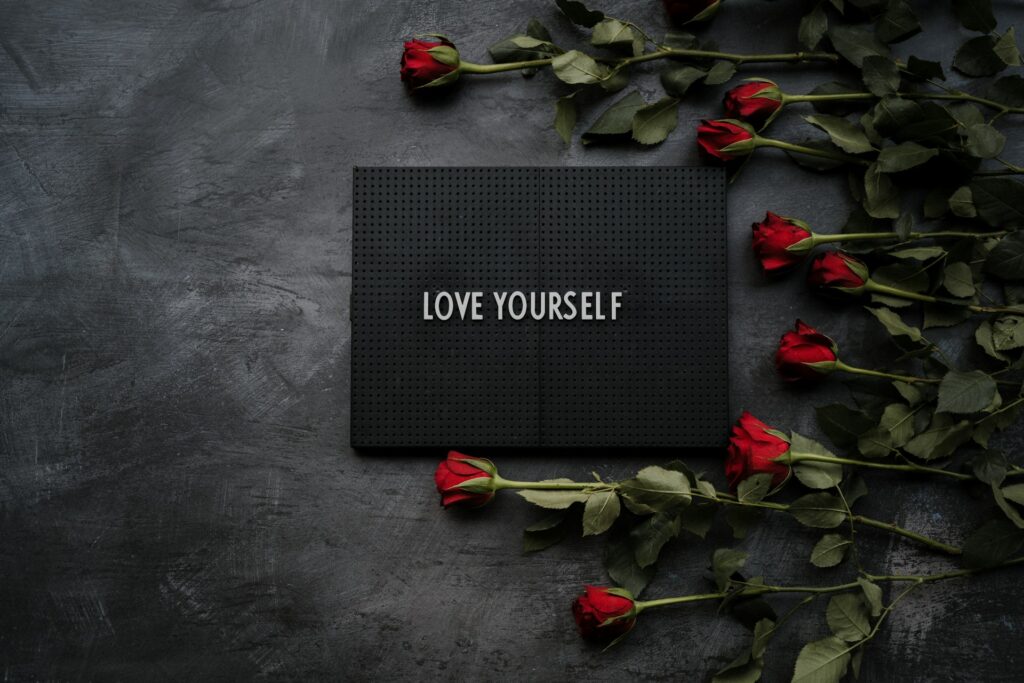
Let’s get real about self-care. It’s not just face masks and bubble baths (though those are nice too). Real self-care is about treating yourself with the same kindness you’d show a best friend.
Basic Needs First
When we’re heartbroken, we often neglect the basics. But your body doesn’t care about your emotional state, it still needs:
- Regular, nutritious meals (yes, even when you don’t feel hungry)
- 7-8 hours of sleep per night
- Daily movement (even just a walk around the block)
- Social connection with supportive people
- Mental stimulation that doesn’t involve analyzing your relationship
The Self-Compassion Practice
Self-compassion has three components, according to researcher Kristin Neff (check out her work at self-compassion.org):
- Self-kindness instead of self-judgment
- Common humanity (remembering you’re not alone in this experience)
- Mindfulness (observing your emotions without being overwhelmed by them)
Try talking to yourself like you would to a dear friend going through the same thing. What would you say to them? How would you comfort them? Now say those same things to yourself.
Creating New Routines
Establish routines that have nothing to do with your ex. Maybe it’s a morning coffee ritual, an evening walk, or Sunday meal prep. These become anchors of stability in an otherwise chaotic time.
I encourage my clients to create what I call “non-negotiable self-care”, things they commit to doing even on their worst days. This might be:
- Making their bed every morning
- Drinking enough water
- Texting one friend every day
- Writing three things they’re grateful for
Push Yourself Out Of Your Comfort Zone
Growth happens at the edge of your comfort zone, and honestly? A breakup has already pushed you way out of your comfort zone, so you might as well use that momentum.
Why Comfort Zones Become Dangerous
After a breakup, it’s natural to want to cocoon, stay in bed, watch Netflix, order takeout, avoid people. A little bit of this is healing, but too much becomes depression.
I’ve worked with clients who spent months in isolation after their breakups, and it made everything worse. They lost confidence, developed social anxiety, and their self-esteem plummeted.
Healthy Ways to Challenge Yourself
The goal isn’t to do scary things just for the sake of it. Choose challenges that align with your values and interests:
- Take that class you’ve been curious about
- Say yes to social invitations (even when you don’t feel like it)
- Try a new physical activity
- Speak up more in work meetings
- Plan activities alone that you used to only do with your ex
Building Evidence of Your Capability
Every time you do something outside your comfort zone and survive (or even thrive), you’re building evidence that you’re capable and resilient. This evidence becomes crucial for your self-confidence.
Start small. Maybe today it’s making a phone call instead of texting. Tomorrow it might be going to that networking event. Next week it could be signing up for salsa lessons.
Break Old Routines

Your old routines were probably built around your relationship. Saturday morning coffee together, Thursday night TV shows, Sunday grocery shopping as a couple. These routines are now triggers that keep you stuck in the past.
Identifying Relationship Routines
Make a list of things you did regularly with your ex. Then, for each item, decide:
- Can I do this differently now?
- Do I want to keep doing this at all?
- What could I do instead that would feel fresh and exciting?
For example, if you always went to the same coffee shop together on Sundays, maybe try a new place or switch to Saturday mornings instead.
Creating New Traditions
This is your chance to design a life that’s 100% yours. What have you always wanted to try? What did you miss doing when you were in the relationship?
Some ideas:
- Start a new workout routine
- Join a book club or hobby group
- Try cooking cuisines you’ve never attempted
- Plan monthly adventures to explore your city
- Start a creative project
The Power of Small Changes
You don’t need to overhaul your entire life overnight. Sometimes changing something small, like taking a different route to work or trying a new grocery store, can create a ripple effect of positive change.
I had a client who started going to a different coffee shop after her breakup. She ended up meeting a group of women who became her closest friends. Sometimes the smallest changes lead to the biggest transformations.
Dealing With Setbacks
Let me be honest with you, healing isn’t linear. You’re going to have days when you feel like you’re back at square one. This is normal, not a sign that you’re broken or doing something wrong.
Common Setback Triggers
- Seeing your ex with someone new
- Anniversaries or special dates
- Mutual friends mentioning them
- Finding old photos or mementos
- Hearing songs that remind you of them
- Major holidays or events
How to Handle Setbacks
When you have a bad day:
- Remind yourself that setbacks are part of the process
- Don’t make any major decisions when you’re emotional
- Use your support system
- Go back to basics (eat, sleep, move, breathe)
- Be extra gentle with yourself
Remember, a bad day doesn’t erase weeks of progress. You’re not back at the beginning, you’re just having a human moment.
Building Resilience
Each time you get through a setback, you build resilience. You prove to yourself that you can handle difficult emotions and come out the other side. This becomes your superpower in future challenges.
When to Seek Professional Help
Sometimes, despite our best efforts, we need extra support. There’s no shame in getting professional help, in fact, it’s one of the smartest things you can do for yourself.
Signs You Might Benefit from Counseling
- You’ve been struggling for several months with no improvement
- You’re having thoughts of self-harm
- You can’t function at work or in daily life
- You’re using substances to cope
- You’re experiencing symptoms of depression or anxiety
- The breakup has triggered trauma from your past
Types of Professional Help
- Individual therapy for personal healing and growth
- Support groups for people going through similar experiences
- Relationship coaching to understand patterns and prepare for future relationships
- Specialized trauma therapy if there was abuse or betrayal
Remember, getting help isn’t a sign of weakness, it’s a sign of strength and self-awareness.
Building Your Support Network

You don’t have to go through this alone. In fact, please don’t try to. Human beings are wired for connection, and isolation makes everything harder.
Identifying Your Support People
Make a list of people in your life who:
- Listen without trying to “fix” you
- Don’t judge your timeline for healing
- Make you feel better about yourself
- Are available when you need them
- Have your best interests at heart
You don’t need a huge network, even two or three solid people can make all the difference.
How to Ask for Support
Many people struggle with asking for help. Try these approaches:
- Be specific about what you need (“Can I call you when I’m having a tough day?”)
- Express gratitude for their support
- Don’t rely on one person for everything
- Offer support in return when you’re able
Creating Boundaries with Well-Meaning Friends
Some friends will want to help but might not know how. It’s okay to tell people:
- “I’m not ready to hear about their new relationship yet”
- “Please don’t try to set me up right now”
- “I need you to just listen, not give advice”
- “I’d rather not talk about the breakup today”
Preparing for Future Relationships
I know this might feel premature, but part of healing is learning from this experience so you can have healthier relationships in the future.
Lessons from Your Past Relationship
Without getting stuck in analysis paralysis, it’s helpful to reflect on:
- What patterns do you want to change?
- What red flags did you ignore?
- What are your non-negotiables going forward?
- How can you communicate better next time?
- What did you learn about yourself?
Healing Your Attachment Style
Many relationship issues stem from our attachment styles, the way we learned to connect with others based on our early experiences. Understanding your attachment style can be life-changing.
Common attachment styles:
- Secure (comfortable with intimacy and independence)
- Anxious (craves closeness but fears abandonment)
- Avoidant (values independence but struggles with intimacy)
- Disorganized (inconsistent patterns, often from trauma)
Taking Responsibility Without Self-Blame
There’s a difference between taking responsibility and blaming yourself. Responsibility is empowering because it means you have control over changing things. Blame is just destructive.
Ask yourself: “What can I do differently next time?” instead of “Why did I mess everything up?”
The Gift of Starting Over
Here’s something I want you to consider: this breakup might be the best thing that ever happened to you. I know that sounds crazy right now, but hear me out.
Opportunities in Disguise
This painful experience is giving you:
- A chance to rediscover who you are outside of a relationship
- An opportunity to heal old wounds and patterns
- Freedom to pursue dreams you put on hold
- Space to build the life you actually want
- The possibility of finding someone who’s truly compatible with you
Your Comeback Story
Every inspiring comeback story has a rock-bottom moment. This might be yours. The woman who emerges from this breakup will be stronger, wiser, and more self-aware.
I’ve seen it happen hundreds of times in my practice. The client who was devastated by their divorce goes on to build an amazing business.
The woman who thought she’d never love again meets the partner of her dreams two years later. The person who lost themselves in their relationship rediscovers a passion that becomes their life’s work.
Writing Your New Chapter
You get to decide what comes next. This isn’t just about getting back to where you were, it’s about creating something better.
What do you want your life to look like six months from now? A year from now? Don’t just think about relationships, think about career, friendships, hobbies, travel, personal growth, contribution to others.
Final Thoughts
Beautiful soul, I want you to know that everything you’re feeling right now is temporary. The pain, the confusion, the loneliness, it will pass.
But the strength you’re building, the lessons you’re learning, and the person you’re becoming? Those are permanent.
Healing from a breakup isn’t just about getting over someone, it’s about coming home to yourself. It’s about remembering who you were before this relationship and discovering who you’re meant to become.
You’re not broken. You’re not too much. You’re not unlovable. You’re human, going through a very human experience, and you’re handling it with more grace than you probably give yourself credit for.
Take it one day at a time. Some days, take it one hour at a time. Be patient with the process and gentle with yourself. Your heart is healing, even when it doesn’t feel like it.
And remember, the love story isn’t over. It’s just beginning. The greatest love story of your life might just be the one between you and yourself. 🙂
Ready to take the next step in your healing journey? Remember that seeking support isn’t just okay, it’s brave. Whether that’s through therapy, coaching, or simply talking to trusted friends, you don’t have to do this alone.
